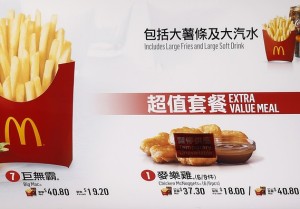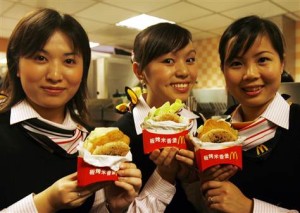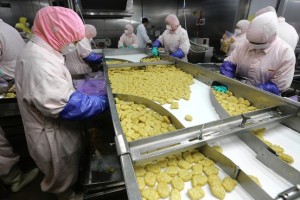Regulators in Shanghai slapped U.S. meat supplier OSI Group LLC and a local subsidiary with more than 24 million yuan ($3.6 million) in fines on Sunday, after a bid by the company to fight back against allegations of selling expired meat to fast-food chains ended in failure.
The fines were announced in a statement posted on Monday to the website of the Shanghai Municipal Food and Drug Administration, which said that both OSI and its subsidiary, Shanghai Husi Food Co., would be put on a “black list” of food-safety violators.
Blacklisted firms face being banned from the food industry for between two and five years, according to local regulations.
The fines extend from a 2014 scandal in which Chinese units of OSI were accused by a local television station of selling out-of-date meat to a number of fast-food outlets, including McDonald’s Corp. and KFC parent Yum Brands Inc. A Shanghai court ruled the company guilty, fined its subsidiaries 2.4 million yuan and sentenced 10 people to prison.
In an unusual move for a foreign company in China, closely held OSI challenged the decision, but lost the appeal in July.





